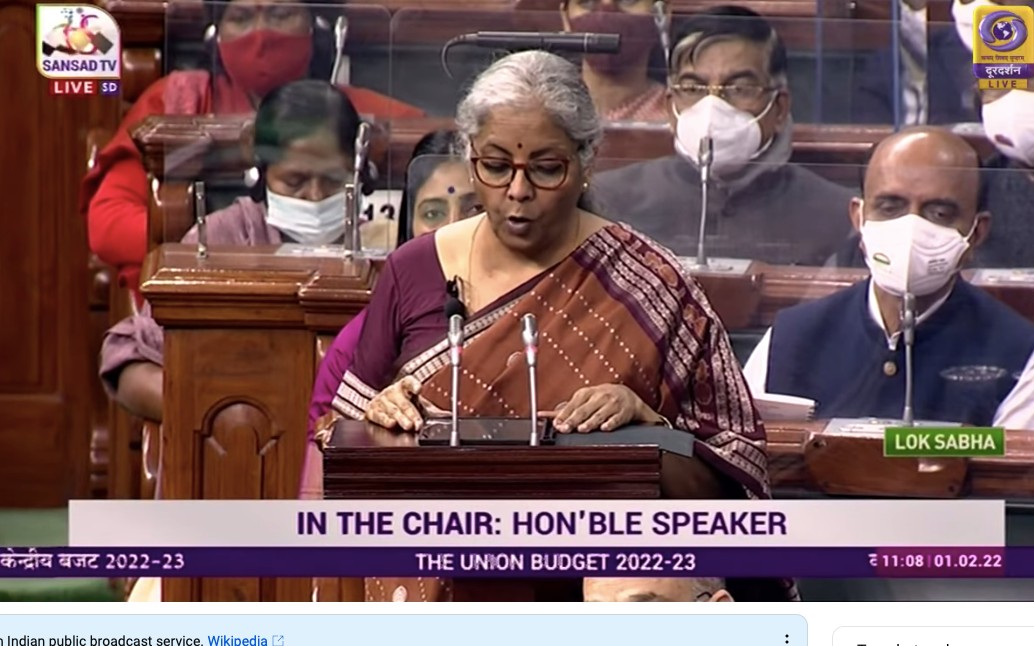Survey said events such as collapse of crypto exchange FTX have put vulnerabilities of the sector in focus; moots to look at global regulation
New Delhi, NFAPost: Presenting the Union Budget 2023, Finance Minister Nirmala Sitharaman came up with a proposal to start digital currency in the country.
“Digital rupee will be issued under the guidance of RBI will begin this financial year. It will make use of blockchain technology,” said Union Finance Minister Nirmala Sitharaman during her budget speech.
This year’s Economic Survey is notable for its expansive discussion on cryptocurrency. The Survey, which presents a summary of the nation’s economic performance vis-à-vis major global and domestic financial trends, has for the first time presented a detailed analysis of the digital currency.
The Survey also emphasised on the need of international collaboration to frame crypto regulations.Commenting on the collapse of the crypto exchange FTX and the subsequent sell-off in the market, the survey said that these events have put the vulnerabilities of the sector in focus.
FTX, which was once the third largest exchange in the world, filed for bankruptcy in November last year. Its co-founder Sam-Bankman Fried is being charged for fraud in the US.
The government’s document said that these digital assets do not “strictly pass” as financial assets because they have no intrinsic value. Moreover, their cross-sector and cross border nature limits the effectiveness of separate national policies. “The geographically pervasive nature of the crypto ecosystem necessitates a common approach to the regulation of these volatile instrument,” it said.
Presenting a global survey of common regulations in place across countries and geopolitical regions like the United Kingdom, Japan, Switzerland and others, the Survey made a strong case for more stringent regulation. “Global standards need to be comprehensive and consistent; regulatory responses must be based on standard taxonomies, reliable data to address contagion effects, and flexible enough to be adjusted in the future based on market developments and future international standards,” it argued.
The emphasis on global collaboration for designing a regulatory response to cryptos has been welcomed by industry leaders especially in the wake of India’s G20 presidency.Rajagopal Menon, the Vice President at WazirX believes this is a major development in the wake of India’s G20 presidency.
“With India as the President of the G20, we can set the agenda for regulation which the rest of the world will follow. In general, the fundamental regulatory principles used in the conventional banking industry can be adapted in the cryptocurrency industry. This could include requiring exchanges to implement similar measures, such as stringent KYC requirements, transaction monitoring, reporting suspicious activity, and strict internal controls for the purpose of discovering and preventing money laundering and other illegal activities,” he said.
Other industry players such as Ashish Singhal, co-founder of CoinSwitch, applauded the Chief Economic Advisor, V Anantha Nageshwaran’s balanced approach to cryptocurrencies.Singhal said, “While taking a cautionary approach to crypto, the Chief Economic Adviser suggested that regulators could consider centralized intermediaries as systemic financial market infrastructures.
This is in contrast to alarmist calls to ban or simply wish away crypto. As the Survey puts it, there is a need for a common approach to regulating the crypto ecosystem. Our hope is India too will move in this direction and not take any regressive measures on crypto.”





